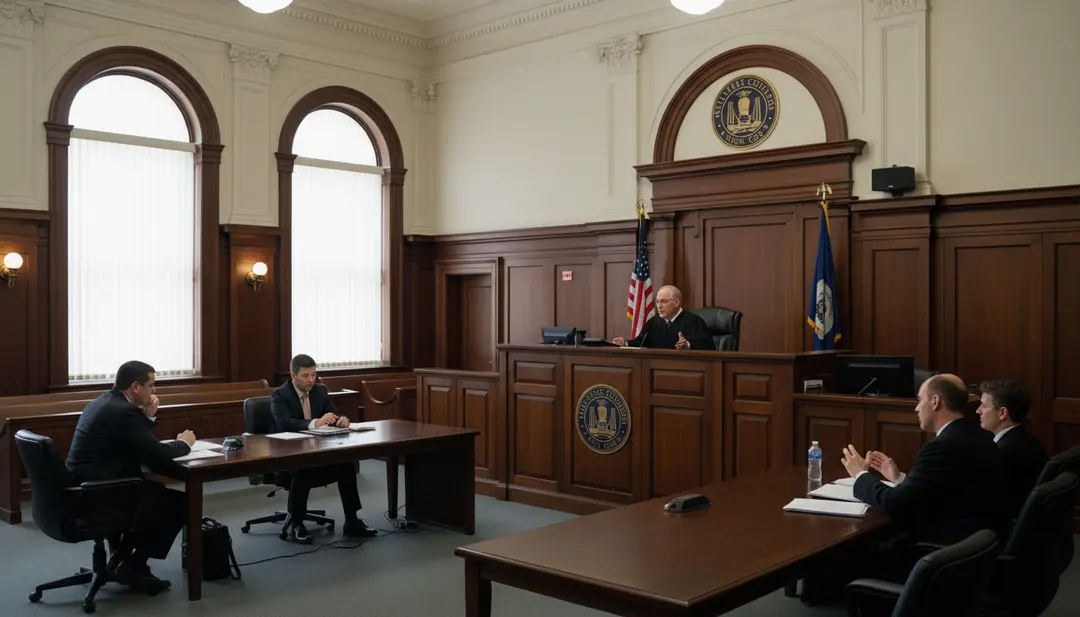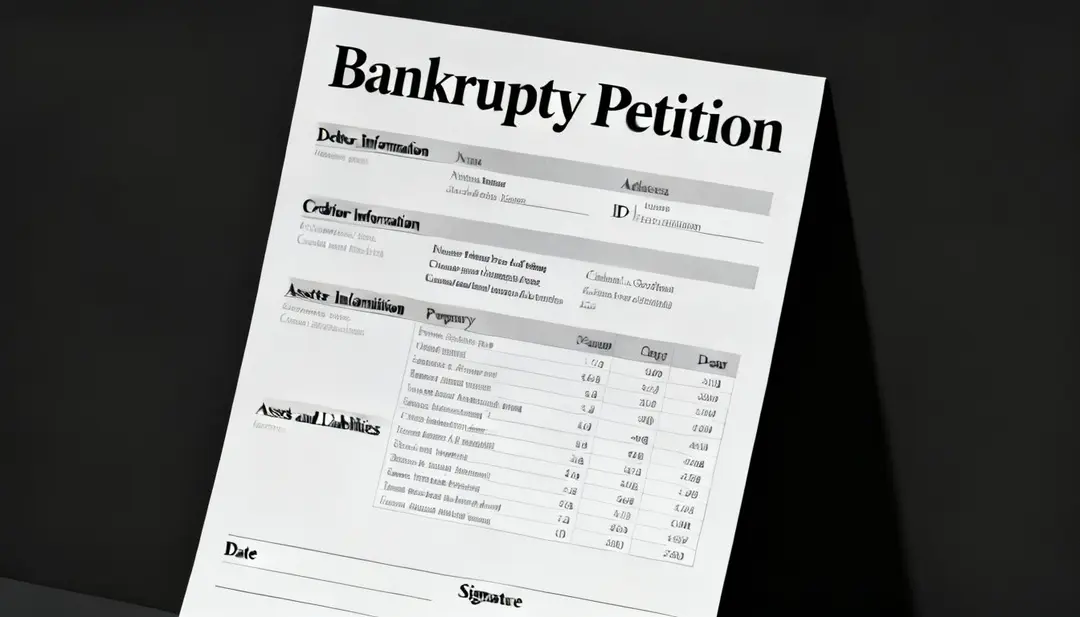Negotiating HOA Service Agreements in Arizona: Expert Strategies for Boards and Managers
Strong vendor contracts shape the daily experience and financial health of every Arizona HOA. When we get negotiating HOA service agreements right, we protect our communities from costly surprises and disputes, while creating peace of mind for both board members and homeowners. With the support of an experienced Arizona HOA Attorney, Phoenix HOA Lawyer, or Tucson HOA Attorney, we can confidently represent our community's best interests at every step.
At Halk, Oetinger, and Brown, we've built a reputation for helping Arizona HOAs understand and fine-tune their service agreements. Our flat rate system keeps legal costs predictable, while our dedicated attorneys deliver practical solutions for everything from covenant enforcement to assessment collection. For many HOA boards and managers, the right negotiation strategies unlock smoother operations and measurable results. To learn more about selecting the right contractors and thoughtfully managing vendor relationships, review our insights on choosing the right contractors for HOA maintenance in Arizona.
Essentials Before Negotiating HOA Service Agreements
Proper planning lays the foundation for effective negotiating of HOA service agreements. When we do the groundwork, we can approach every contract with confidence, reduce risks, and give our HOA the best chance at long-term success. There are two essentials every board or manager should focus on before starting talks: reviewing governing documents and preparing a strong scope of work.
Reviewing Governing Documents and Legal Requirements
Reviewing our community’s governing documents is the first step. The Covenants, Conditions & Restrictions (CC&Rs) and bylaws spell out the rules, limits, and powers the board has when working with vendors. Ignoring these details can put the whole contract at risk, or cause headaches down the road.
Arizona law adds another layer of requirements. Statutes covering planned communities and condominiums affect everything from spending limits to contract disclosures. Staying compliant keeps our agreements enforceable and protects us from liability.
Working with an Arizona HOA Attorney, Phoenix HOA Lawyer, or Tucson HOA Attorney during this phase brings peace of mind. A legal review helps us:
• Spot hidden or outdated rules in our CC&Rs and bylaws that could stop contract terms from being valid.
• Check for any state or local laws that apply to the type of service we’re seeking.
• Make sure our board follows proper voting procedures and recordkeeping.
Bringing in legal counsel isn’t just about due diligence—it keeps us from missing risks that only experience reveals. For more insights on how expert legal support shapes better vendor relationships, we recommend exploring the benefits of expert legal counsel for Arizona condo boards.
Preparing Scope of Work and Vendor Criteria
Once we know our legal boundaries, we need to prepare detailed expectations. A clear scope of work outlines what we want the vendor to do, when, and how. This should include:
• Specific services to be provided
• Quality standards for materials and labor
• Timelines and key deadlines
• Payment terms
• Reporting requirements
We also need to define criteria for vendor selection. What qualifications matter most to our community? These might include:
• Proper licensing and insurance
• Proven track record with other HOAs
• Ability to meet our communication standards
• Transparent pricing and fair contract terms
By preparing these details before negotiations start, we prevent misunderstandings and set goals everyone can measure. An organized approach narrows down vendors to the ones who fit our needs, saving time and reducing risk.
To dive deeper into creating fair agreements and picking vendors that protect the value of our communities, refer to our tips on choosing the right contractors for HOA maintenance in Arizona. Good preparation is the secret to negotiating HOA service agreements that serve everyone—board, residents, and vendor alike.
Conducting Successful Vendor Negotiations for HOAs in Arizona
Getting the best value and terms in vendor contracts is one of the most important responsibilities for Arizona HOA boards. Successful negotiations protect our association’s budget, limit risk, and make ongoing operations smoother. Relying on our combined board experience—and the focused insight from an Arizona HOA Attorney or Phoenix HOA Lawyer—makes the difference between a contract that runs smoothly and one that lands us in trouble. As stewards of our communities, we need to make sure every service agreement clearly benefits homeowners while keeping legal exposure low.
Key Contract Terms and Protections to Negotiate
When negotiating HOA service agreements, paying close attention to specific contract terms is essential. These clauses protect our community from misunderstandings, project delays, and unexpected costs. We should always discuss and clarify the following provisions:
• Termination Clauses: We need a clear right to end the contract if performance is unsatisfactory or if circumstances change. Include fair notice periods, and detail any penalties or refunds.
• Liability and Indemnity: Specify who is responsible if things go wrong, such as accidents or property damage. Limit liability for the HOA when possible and make the vendor carry enough insurance.
• Payment Schedules: Spread payments out according to project milestones or after service completion, never all up front. This keeps the vendor motivated and protects our funds if the job isn’t done right.
• Warranties and Guarantees: Lock in warranty periods for both labor and materials. Define what issues are covered, how repairs are handled, and how long coverage lasts.
• Renewal and Extension Terms: Avoid contracts that automatically renew without board approval. Make renewal terms mutual and simple to understand, so we aren’t stuck with a vendor who doesn’t fit.
• Scope of Work and Performance Standards: Be specific—what services should be done, by when, at what standard? Detailed scopes prevent arguments over “what was promised.”
• Dispute Resolution: Decide in advance how conflicts will be managed. Consider mediation or arbitration before court to save time and money.
Drawing from both legal advice and our experience on HOA boards, we’ve found that proactively addressing these terms results in fewer surprises and a better vendor relationship. For further guidance, consult choosing the right contractors for HOA maintenance in Arizona for practical contract management tips.
Using Legal Counsel Effectively in Contract Negotiations
Working with an Arizona HOA Attorney, Phoenix HOA Lawyer, or Tucson HOA Attorney during negotiations is one of the smartest steps we can take. Their role isn’t just to catch legal loopholes—they give strategic advice that shapes the outcome to our benefit.
How should we bring legal counsel into the process?
• Drafting and Reviewing Contracts: Let legal counsel draft the initial version of the contract or review vendor-supplied documents for hidden risk, vague language, or missing protections.
• Setting Board Expectations: Attorneys can spot common vendor “tricks” and explain legal limits, helping the board set realistic boundaries.
• Direct Negotiations: In some cases, our attorney can negotiate directly with the vendor or their lawyer, pushing for terms that maximize our protections and value.
• Ongoing General Counsel: Having a trusted legal partner on call gives our board peace of mind—no more frantic last-minute reviews before a signing deadline.
At Halk, Oetinger, and Brown, we believe ongoing general counsel relationships help HOAs manage their legal budgets and planning. Our flat rate system means boards don’t worry about the clock running every time they reach out with a question. If you want advice or support for your association, see our resource for keeping your HOA community in compliance with general counsel advice from an Arizona HOA law firm, which explains the many ways HOA lawyers guide boards through contract negotiation and compliance.
Negotiating HOA service agreements doesn’t have to be stressful or risky. With the right terms, a clear plan, and professional legal support, we can protect our association and secure the services our community needs.
Managing and Storing HOA Vendor Contracts Post-Negotiation
Once we finish negotiating HOA service agreements, the real work begins. Having detailed, signed vendor contracts is not enough—how we manage and store these documents will shape our HOA’s risk exposure, daily efficiency, and legal compliance for years to come. Vendor contracts hold the ground rules for everything from routine landscaping to major repairs, so easy access and strong protections are a must. Losing track of these agreements disrupts business, undermines board decisions, and puts the association at risk when disagreements come up.
Let’s walk through the best ways to secure, organize, and update our contract records so our HOA is always prepared.
Secure Storage and Access
After we sign a contract, we need to protect it as if it were the keys to the community center. Contracts must be stored in a secure, well-organized space—with reliable backup. Digital cloud storage is a smart choice for most HOAs today, letting us share documents instantly among board and management members. We also recommend keeping a physical copy in a locked cabinet, with defined access granted to specific people only.
Think about:
• Cloud-based storage that allows for easy searching and sharing
• Two-factor authentication to prevent unauthorized access
• Routine backups to avoid losing records in a technical issue
• Physical security for any printed contracts or supporting documents
For guidance on document security and keeping sensitive information safe, check out best practices for HOA cyber security. Cyber security is just as important as lock-and-key for today’s HOAs.
Record Retention and Compliance
Not all contracts have the same shelf life. Our governing documents and Arizona law set minimum retention periods. Some vendor agreements must be kept for six years or even longer to comply with state rules or to protect our rights if issues arise. If in doubt, it’s always safer to hold onto vendor contracts longer rather than risk destroying critical papers.
Important practices for contract retention include:
• Labeling contracts with the date of execution and expiration
• Setting calendar reminders for periodic review and contract renewal deadlines
• Maintaining logs of all amendments, addenda, and key correspondence
• Archiving expired contracts, but ensuring they remain accessible if future questions pop up
For further details about retaining HOA documents, we recommend reviewing The Ultimate HOA Records Retention Guide, which explains legal timelines and practical steps for document management.
Ongoing Management and Contract Updates
Our responsibilities don’t end with storing signed contracts. As our HOA grows and changes, some agreements will need updates or amendments. Mark important dates like renewal notice deadlines and performance review checkpoints on the HOA’s master calendar. Frequent board changes make a strong handoff process vital—incoming members should know exactly where to find every active contract and supporting agreement.
Best practices for management include:
• Assigning a contract administrator, often a board member or property manager
• Ensuring all amendments go through legal review with an Arizona HOA Attorney, Phoenix HOA Lawyer, or Tucson HOA Attorney
• Notifying vendors in writing of any changes, with a copy always kept with the original agreement
• Scheduling regular contract audits—at least annually—to confirm active terms and compliance
If you want to learn more about the role of contract negotiation and management, Andrea Miska at our firm provides insight grounded in extensive experience. See her expertise on contract and lease negotiation and dispute management, which strengthen any HOA’s contract oversight.
By treating vendor contracts as living documents and storing them securely, we lay a solid foundation for financial health, smooth operations, and community protection. In the next section, we’ll explore what steps to take when performance issues or disputes arise with vendors—another area where a careful approach and solid records make all the difference when negotiating HOA service agreements.
Frequently Asked Questions About Negotiating HOA Service Agreements in Arizona
Negotiating HOA service agreements in Arizona leads to many pressing questions from board members and community managers. We all aim to secure favorable terms, reduce risk, and keep vendor relationships smooth. Below, we address the questions we hear most often, using our experience as attorneys and insights gathered from working with hundreds of Arizona HOAs.
What Legal Issues Should We Watch For in Service Agreements?
HOA contracts come with pitfalls. Common issues include unclear termination clauses, missing insurance requirements, vague scopes of work, and unreasonable penalty clauses. Every agreement should spell out:
• Who is responsible for what
• When and how payments are made
• How to handle disputes and end the agreement if things go wrong
Involving an Arizona HOA Attorney, Phoenix HOA Lawyer, or Tucson HOA Attorney helps us catch “traps” and hidden costs before signing. For contracts that could affect operations during emergencies, it helps to pre-negotiate terms that provide clarity and save time. For more insight on this, review the advice on best practices for disaster preparedness and response in Arizona HOAs.
How Should We Compare Vendor Proposals?
Comparing bids goes beyond just price. We look at a few key points:
• Vendor’s history with Arizona HOAs
• Quality guarantees and performance standards
• Clarity in scope of work and payment terms
• References from other local associations
We always check that the lowest bid still meets our community’s needs and covers legal requirements. A proposal that saves money up front but lacks coverage if things go wrong rarely pays off in the long run.
Can We Negotiate Payment Terms and Cost Structure?
Absolutely. Boards have leverage. It’s common to stage payments based on service milestones or completed work, which protects our community’s funds if there are delays or problems. We also seek out flexible terms—such as annual fixed rates or extended warranties—to limit surprises. Working with firms like Halk, Oetinger, and Brown, many associations appreciate a flat-rate model because it removes hourly billing stress and makes future budgeting much easier.
What If the Vendor Refuses to Change Unfavorable Terms?
Some vendors push back. If they won’t amend risky clauses or fail to offer needed insurance, we don’t hesitate to move on. There are always alternative options in the Arizona market. We keep our communications professional and clear, explaining why these changes are necessary for community protection. If the vendor won’t meet our terms, it’s a sign to continue our search.
How Does Contract Negotiation Affect Assessment Collection?
Vendor contracts connect directly to assessment collection and financial health. Clear agreements help prevent costly disputes, which is essential for maintaining healthy association finances. If your board struggles with collecting dues or managing delinquencies, explore the benefits of Arizona HOA assessment collection services that align with good contract practices.
Who Should Review Final Service Agreements?
Every final agreement deserves a review by both the board and a qualified attorney. While board members focus on operational and community fit, the attorney focuses on legal language, compliance, and risk. For complicated or high-stakes agreements, involving both legal and financial counsel is the most responsible choice.
By understanding these common questions and answers, we place ourselves in a stronger position every time we’re negotiating HOA service agreements. Thoughtful preparation, clear expectations, and using the right legal guidance give us the best results for our communities.
Conclusion
Negotiating HOA service agreements in Arizona requires preparation, clear documentation, and the right legal support. Working closely with experienced Arizona HOA Attorneys, Phoenix HOA Lawyers, or Tucson HOA Attorneys protects our communities and helps us avoid common mistakes. By staying organized, reviewing contract terms, and making use of reliable internal processes, we give our HOA the best chance to secure favorable vendor relationships.
Whether we are updating practices or reviewing new service contracts, tapping into proven legal guidance gives us the confidence to act in the community’s best interests. At Halk, Oetinger, and Brown, our flat-rate general counsel and industry-leading collection program demonstrate our commitment to practical, affordable solutions for Arizona HOAs. To deepen your understanding of contract best practices, explore strategies for successful vendor negotiations and board governance.
Let’s continue strengthening our communities—one well-negotiated agreement at a time. Our team stands ready to deliver tailored, effective legal advice when you need it most. If you want guidance specific to your community’s needs, reach out today.














